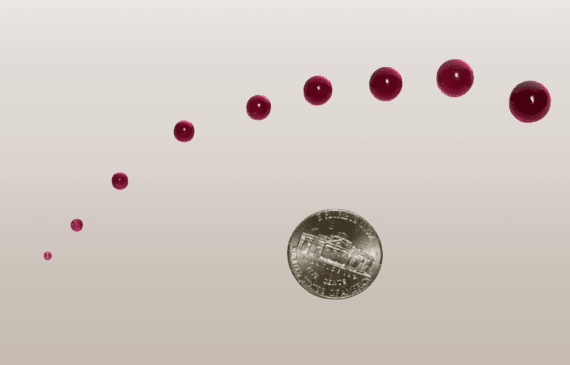Ruby Ball
In instruments, meters, and control devices, a “ruby ball” or “ruby ball tip” often refers to a spherical or ball-shaped tip or bearing made from synthetic ruby. These ruby ball tips are used in various precision measurement and control applications. Here’s how they are typically used and why they are preferred:
- Probe and Measurement Devices: Ruby ball tips are used in probes, stylus tips, and measurement devices, such as coordinate measuring machines (CMMs) and surface roughness testers. The spherical shape ensures even contact with the surface being measured, which is essential for accurate readings.
- Coordinate Measuring Machines (CMMs): In CMMs, which are used for high-precision dimensional measurements, ruby ball tips are attached to the machine’s probe. They come into contact with the object being measured, and their hardness and smoothness ensure precise results.
- Surface Roughness Testers: Surface roughness testers use ruby ball tips to trace the contours of surfaces and measure their roughness. The spherical tip ensures consistent contact with the surface, leading to reliable readings.
- Control Devices: Ruby ball tips are also used in various control devices for position sensing and alignment. Their smooth and durable surface allows for accurate and repeatable control.

The key advantages of using ruby ball tips in these applications include:
- Hardness: Synthetic ruby is extremely hard, which means it resists wear and maintains its shape and smoothness over time. This is crucial for achieving precise and consistent measurements.
- Smoothness: The surface of synthetic ruby is exceptionally smooth, minimizing friction and ensuring that the contact point remains stable during measurements or control operations.
- Wear Resistance: Ruby is highly resistant to wear and abrasion, making it a durable choice for continuous use in applications where the tip may come into contact with various materials.
- Chemical Inertness: Ruby is chemically inert, meaning it is not affected by most chemicals. This makes it suitable for use in diverse environments.
- Non-Magnetic: Synthetic ruby is non-magnetic, which is advantageous in applications where magnetic interference can be a concern.
The use of ruby ball tips in instruments and measurement devices contributes to the accuracy and reliability of various industrial processes and quality control procedures.
For more about product informations, please visit Saphire tube, Ruby bearing and Sapphire windows.
Sources
- American Foundry Society. “Metal Casting”
- Wikipedia. “Investment Casting“, “Sand Casting“
- efunda. “Sand Casting“
- The Investment Casting Institute. “What is Investment Casting?“
- The Library of Manufacturing. “Investment Casting“
- Forging Industry Association “Forging Industry“
Our Internal Resources for Die Casting, Investment casting, Forging and Sand Casting
- Die Casting
- Aluminum Die Casting
- Zinc Die Casting
- A356 Aluminum Casting with T6 Heat Treatment
- Magnesium Die Casting
- Investment Casting
- Stainless Steel Casting
- Duplex Stainless Steel Casting
- Super Duplex Stainless Steel Casting
- Titanium Casting
- Carbon & Low Alloy Casting
- Forging
- Cold Forging
- Hot Forging
- ECO BRASS C69300 Brass Forging
- Sand Casting (Aluminum Sand Casting, Ductile Iron Sand Casting, Gray Iron Sand Casting)
- Specialty Fittings and Fasteners
- Precision CNC Machining and Secondary Operations
